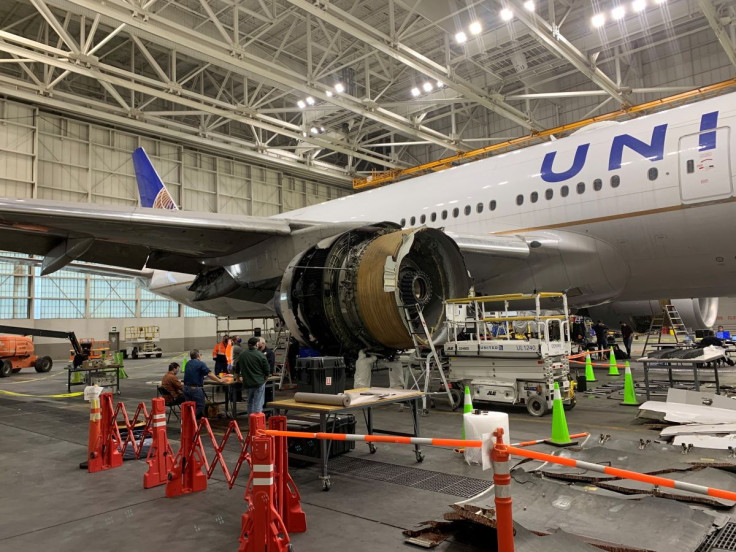U.S. FAA Finalizes Boeing 777 Safety Directives After Fan Blade Failures

The Federal Aviation Administration (FAA) said on Wednesday it is finalizing three safety directives for some grounded Boeing 777 planes with Pratt & Whitney 4000 engines that will allow them to return to service.
The new final airworthiness directives cover Boeing 777s like a United Airlines 777 that failed shortly after takeoff from Denver in February 2021, showering debris over nearby cities. No one was injured and the plane safely returned to the airport.
The FAA said the new directives, which were proposed in December after three reported in-flight fan blade failures, require enhanced inspections and modifications that will allow Boeing 777-200 and -300 airplanes equipped with those Pratt & Whitney engines to resume flights after being grounded for more than a year.
One directive requires installing debris shields on the thrust reverser inner wall, inspecting fan cowl doors for moisture ingression and repetitive checks of the hydraulic pump shutoff valves. Another requires modifying the engine inlet to withstand fan blade failure events. A third requires specific corrective actions depending on inspection results.
The directives will be effective in mid-April.
In February 2021, the agency ordered immediate inspections of 777 planes with PW 4000 engines before further flights, after the National Transportation Safety Board found a cracked fan blade on the United engine.
United, which is the only U.S. operator of 777s with the PW4000 engine and has 52 of those planes, said the step "is a good and safe outcome for our industry and United customers."
The airline said "many of the affected engines have already undergone these proposed modifications. We expect these aircraft to resume flying customers again soon."
Boeing must now develop a service bulletin laying out steps airlines must take to meet requirements. FAA must approve that bulletin before the planes can return to service.
Boeing did not immediately comment.
In April, Japan Airlines said it had retired its fleet of 13 Boeing Co 777s with PW4000 engines a year earlier than planned, having suspended operations in February.
The Japanese carrier had an incident of its own with the PW4000 engines in December, when a malfunction forced a Tokyo-bound JAL 777 to return to Naha airport in Okinawa.
The engines are on only a small number of older 777s operated by JAL, United, ANA Holdings Inc, Korean Air Lines Co Ltd, Asiana Airlines Inc and Jin Air Co Ltd.
© Copyright Thomson Reuters 2024. All rights reserved.




















